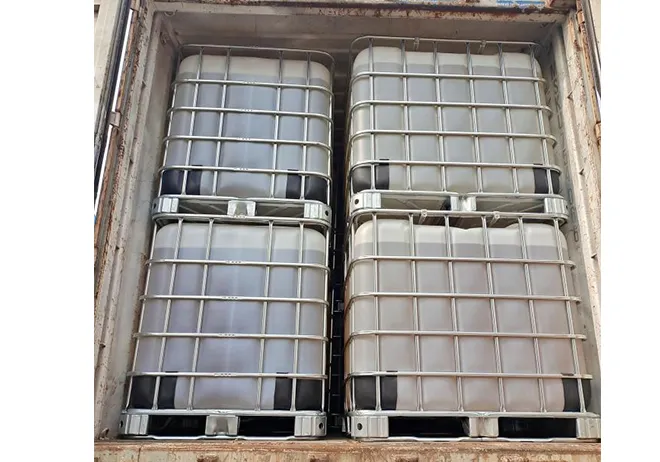
Understanding Malic Acid as a Natural Preservative for Food Preservation and Flavor Enhancement
Malic Acid The Natural Preservative for Food and Beyond
Malic acid is a naturally occurring organic compound that plays a vital role in the food industry, particularly as a preservative. Derived primarily from apples (the name itself comes from malus, the Latin word for apple), it is a dicarboxylic acid that not only enhances flavor but also aids in food preservation. In recent years, malic acid has garnered attention for its versatility, safety, and effectiveness in a variety of applications.
Malic Acid The Natural Preservative for Food and Beyond
In the food and beverage industry, malic acid is frequently used in fruit juices, candies, and carbonated drinks, where it serves not only to preserve but also to enhance the tartness, making these products more appealing. Its sour flavor profile complements sweet ingredients, creating a balanced sensory experience that many consumers enjoy. For instance, in sour candies, malic acid is the secret ingredient that contributes to its distinctive tang, making it a hit with both children and adults alike.
malic acid preservative

Aside from its role as a food preservative, malic acid also offers benefits in skincare products. Its natural exfoliating properties make it a common ingredient in cosmetics and personal care items. By promoting skin cell turnover, malic acid can help improve skin texture, reduce signs of aging, and enhance the overall appearance of the skin. This has led to an increase in demand for products incorporating malic acid, which is particularly appealing to consumers looking for gentler alternatives to harsher chemical exfoliants.
Moreover, malic acid is being studied for its potential health benefits beyond its preservative capabilities. Research suggests it may play a role in energy production within the body, as it is involved in the Krebs cycle—a series of reactions critical for cellular respiration. Some studies indicate that malic acid may help alleviate symptoms of fibromyalgia and chronic fatigue syndrome, spurring interest in its use as a dietary supplement.
While the advantages of malic acid are multifaceted, it is important to consider dosage and individual tolerance, as with all food ingredients and supplements. Though it is generally safe, excessive consumption can lead to gastrointestinal discomfort for some individuals. Therefore, companies utilizing malic acid in their products must ensure that they adhere to recommended guidelines for its use.
In conclusion, malic acid stands out as a valuable component in the food industry, not only for its preservative capabilities but also for its flavor-enhancing properties. Its safety profile and natural origin provide a reassuring choice for health-conscious consumers. Furthermore, its utility extends into skincare and potential health benefits, marking it as a compound worth further exploration. As consumer preferences continue to shift towards natural and effective solutions, malic acid is poised to remain a relevant and highly regarded ingredient in a variety of applications, making it a key player in the future of food preservation and beyond.
-
Sodium Dichloroisocyanurate Safety Handling ProtocolsNewsJul.29,2025
-
Mining Chemicals for Copper Extraction Processes GuideNewsJul.29,2025
-
Fertilizer for Sale Shipping and Storage TipsNewsJul.29,2025
-
Dimethyl Disulfide as Sulfurizing AgentNewsJul.29,2025
-
Benzotriazole Safety Data Handling and Storage GuidelinesNewsJul.29,2025
-
Ammonium Bicarbonate Safety Handling Storage GuidelinesNewsJul.29,2025
-
The Transformative Role Of Trichloroisocyanuric Acid in Water TreatmentNewsJul.23,2025
Hebei Tenger Chemical Technology Co., Ltd. focuses on the chemical industry and is committed to the export service of chemical raw materials.
-

view more DiethanolisopropanolamineIn the ever-growing field of chemical solutions, diethanolisopropanolamine (DEIPA) stands out as a versatile and important compound. Due to its unique chemical structure and properties, DEIPA is of interest to various industries including construction, personal care, and agriculture. -

view more TriisopropanolamineTriisopropanolamine (TIPA) alkanol amine substance, is a kind of alcohol amine compound with amino and alcohol hydroxyl, and because of its molecules contains both amino and hydroxyl. -

view more Tetramethyl Thiuram DisulfideTetramethyl thiuram disulfide, also known as TMTD, is a white to light-yellow powder with a distinct sulfur-like odor. It is soluble in organic solvents such as benzene, acetone, and ethyl acetate, making it highly versatile for use in different formulations. TMTD is known for its excellent vulcanization acceleration properties, which makes it a key ingredient in the production of rubber products. Additionally, it acts as an effective fungicide and bactericide, making it valuable in agricultural applications. Its high purity and stability ensure consistent performance, making it a preferred choice for manufacturers across various industries.











